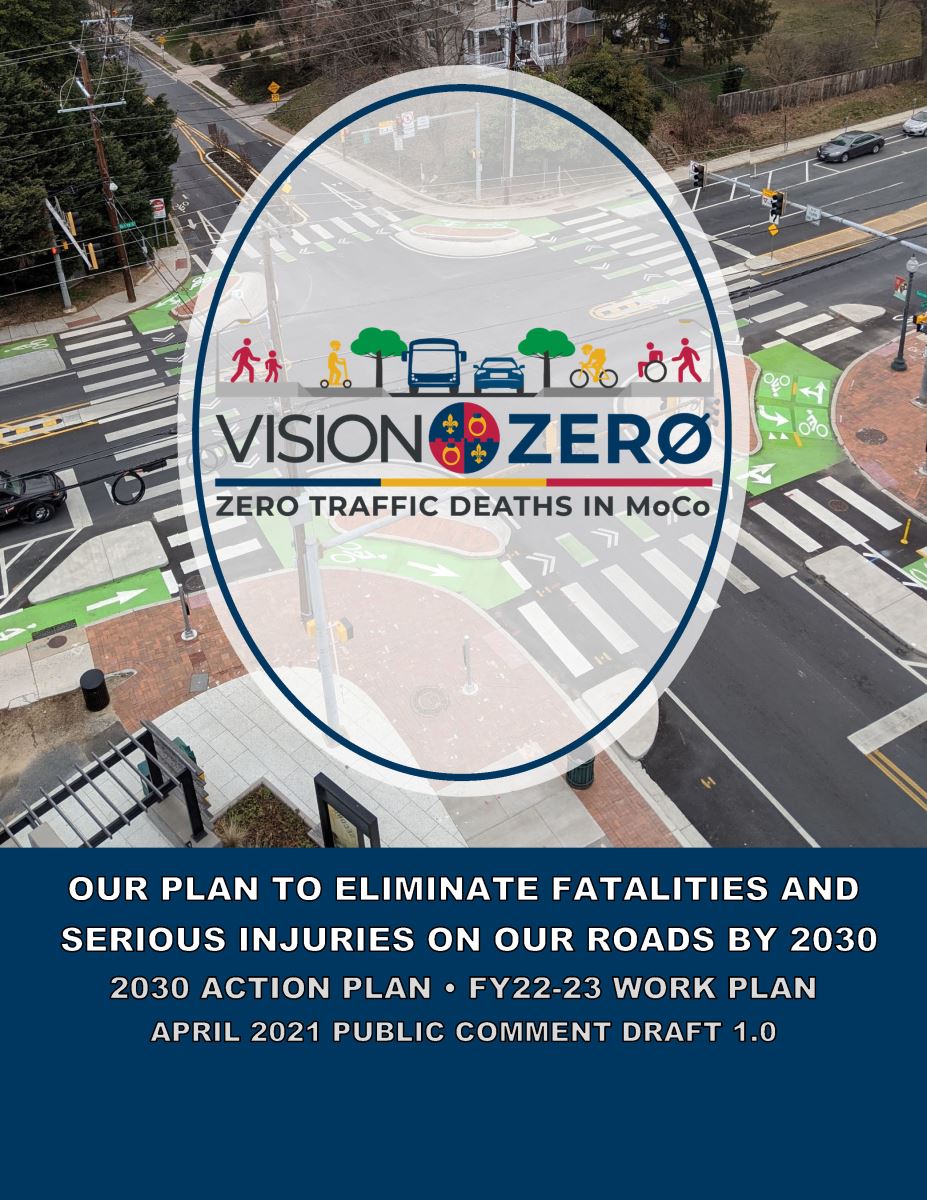In addition to the survey, five virtual listening sessions were held to gather input on the plan since it was released.
A copy of the plan and access to the survey are available at https://www.montgomerycountymd.gov/visionzero/2030plan.html.
“We have made progress since adopting the first Vision Zero plan in late 2017, but there is much more we can do. The number of serious and fatal injuries remains higher than we can accept,” said County Executive Elrich. “We need to be innovative in using more low-cost interventions to improve more roads and intersections every year. This plan does that by expanding Vision Zero into more of the County’s maintenance programs. We need to hear from County residents to make the Vision Zero Plan stronger and meet the needs of everyone regardless of how they get around the County.”
Vision Zero Coordinator Wade Holland said much was learned from the five listening sessions, but he believes members of the public may still have more to contribute. Filling out the survey will be a big help to those working on the plan.
“I want to thank everyone who has contributed to building this plan to date,” said Vision Zero Coordinator Holland. “We have had many residents across the County tell us through a series of community interviews, surveys, focus groups and letters what they need to make our communities safer for everyone walking, rolling, biking and driving. Let’s work together to end traffic deaths this decade.”
The Vision Zero concept for roadway safety originated in Sweden in 1997 and is credited for making that country’s roads some of the safest in the world—even with increases in driving, walking and biking. Vision Zero has been adopted by more than 40 jurisdictions in the United States. Montgomery County is one of the first counties in the United States to adopt a Vision Zero initiative.
“We have made progress since adopting the first Vision Zero plan in late 2017, but there is much more we can do. The number of serious and fatal injuries remains higher than we can accept,” said County Executive Elrich. “We need to be innovative in using more low-cost interventions to improve more roads and intersections every year. This plan does that by expanding Vision Zero into more of the County’s maintenance programs. We need to hear from County residents to make the Vision Zero Plan stronger and meet the needs of everyone regardless of how they get around the County.”
Vision Zero Coordinator Wade Holland said much was learned from the five listening sessions, but he believes members of the public may still have more to contribute. Filling out the survey will be a big help to those working on the plan.
“I want to thank everyone who has contributed to building this plan to date,” said Vision Zero Coordinator Holland. “We have had many residents across the County tell us through a series of community interviews, surveys, focus groups and letters what they need to make our communities safer for everyone walking, rolling, biking and driving. Let’s work together to end traffic deaths this decade.”
The Vision Zero concept for roadway safety originated in Sweden in 1997 and is credited for making that country’s roads some of the safest in the world—even with increases in driving, walking and biking. Vision Zero has been adopted by more than 40 jurisdictions in the United States. Montgomery County is one of the first counties in the United States to adopt a Vision Zero initiative.

